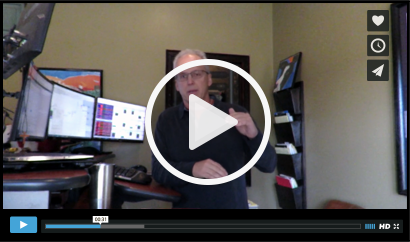Regarding stop orders, I have been told that if I place a sell stop order, the market makers may “dip” down and take me out of my position even though the bid may be higher. Because of this, I haven’t placed official sell stop orders, yet because I haven’t I have lost more money on some trades than if I had placed the orders. Also when do you use sell “stop orders” vs. sell “stop limit orders”?
Your concern is well-founded, but your second statement is proof that even though you can lose out on some profits, if you cannot watch the market, stops may be the only friend you have.
We have been the victim of a market maker running a price down and taking out a position where we were utilizing trailing stops. It has been blatant at times as buying remained strong on the Nasdaq Level II screen, but the price was dropped and immediately moved back up in an instant after we were taken out. Other times it has been more of a result of the ebb and flow of the market.
How you are treated often depends upon how your broker treats your stop order. If the broker has its own system whereby stops are maintained and shielded from market makers, you avoid a lot of the risk of an unscrupulous market maker. Some brokers advertise this, others you just have to ask. Ask yours how your stop orders are treated. Smith Barney does a pretty good job of protecting our stop orders on our options.
Still, we are not immune to getting taken out and then seeing the stock race back up. We look at it as the price of insurance, but we can control that cost. First, as your question noted, if you don’t use a stop and cannot watch every minute, you can lose a lot of money if the stock moves sharply against you. Now think about what we have been saying for months-it is important to avoid the big loss. You have to limit your losses. At the same time, you do your best to let your winners run. The key, however, is to avoid letting one loss wipe out five winning trades. Thus, it is better to err on the side of limiting a loss than cutting off a gain.
What is incumbent upon us is to keep track of a stock we are playing. If we get stopped out and we still like the stock, we have to be ready to re-enter the play if it starts performing for us again. That way we limited a possible loss and are still ready to make the play we wanted if it sets up again. If it tanked, we got out and can look to greener pastures (or play the downside-we have done that more than once).

